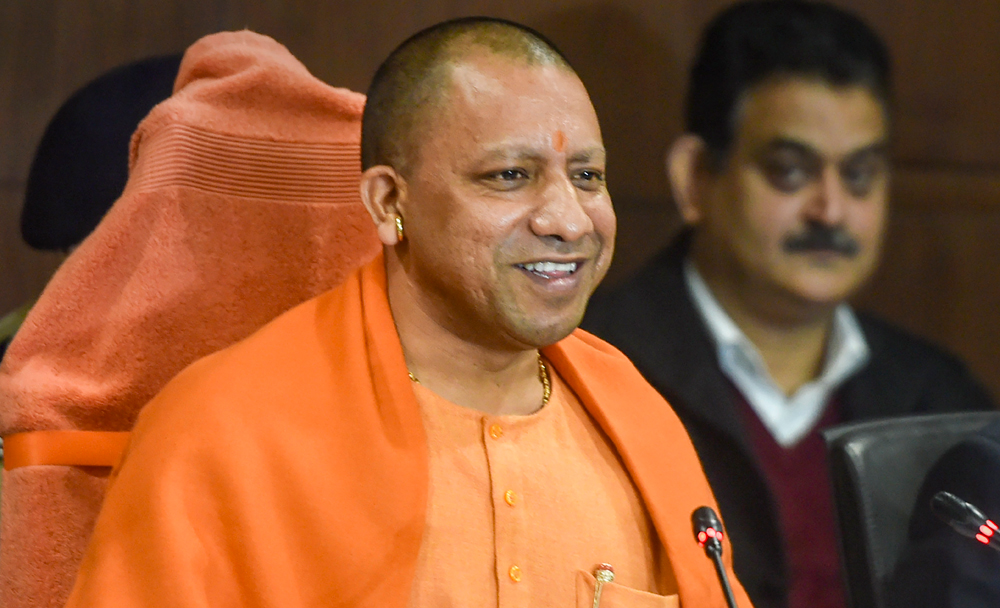The Uttar Pradesh cabinet on Monday approved a police commissionary system for Lucknow and Noida, clearing the way for the transfer of certain powers of district magistrates including the authority to impose Section 144 in anticipation of mass unrest.
Under the commissionary system, some of these magisterial and administrative powers of district magistrates would be transferred to newly appointed commissioners of police.
Chief minister Yogi Adityanath said it was a long-pending decision that could be taken because of his “political willpower”.
“(It is) a historic decision to maintain law and order in the state and improved policing,” Adityanath said.
“This system is recommended for a city which has a population of more than 10 lakh. Initially, we are introducing it in two cities.”
Uttar Pradesh police report to Adityanath, who handles the home department too.
Additional directors-general of police Sujit Pandey and Alok Singh have been appointed the commissioners (CPs) of Lucknow and Noida, respectively. The commissioners would henceforth issue orders for imposition of Section 144, if needed. There would be two joint commissioners of the rank of inspector-general.
The cabinet’s decision comes in the backdrop of a general perception that the Criminal Procedure Code section, which prevents gatherings of five or more people at a place, had been misused by the Adityanath government.
The section was in force in Varanasi — Prime Minister Narendra Modi’s parliamentary constituency — for most of last year, imposed during every major religious festival, apart from visits by important ministers to the holy city.
In state capital Lucknow, the prohibitory order was imposed ahead of the Supreme Court’s November 9 verdict on the Ramjanmabhoomi-Babri Masjid case and it was still in force after more than two months.
Courts have in recent weeks questioned the state government for imposing Section 144 in Lucknow without informing the people.
The district administration had arrested a large number of anti-citizenship act protesters last month on the charge of violating prohibitory orders but failed to prove in court that it was really in force and the people had been made aware of the administration’s decision.
Observers believe the new system would help the government in quick curbing of mass protests, like those seen during demonstrations against the Citizenship (Amendment) Act and the National Register of Citizens.
“However, the IAS lobby will dislike the curtailment of their powers,” a government official said.
The DMs would continue looking after revenue, excise and permissions for arms licences.
Under the new system, the police commissioners would also be able to issue an order to extern someone or book them under the National Security Act, Goonda Act and the Gangster Act.
“This CP system is there in almost every state of the country, except Uttarakhand, Madhya Pradesh, Chhattisgarh, Bihar and Jharkhand, as we also switched to the CP system on Monday,” Uttar Pradesh director-general of police O.P. Singh said.











